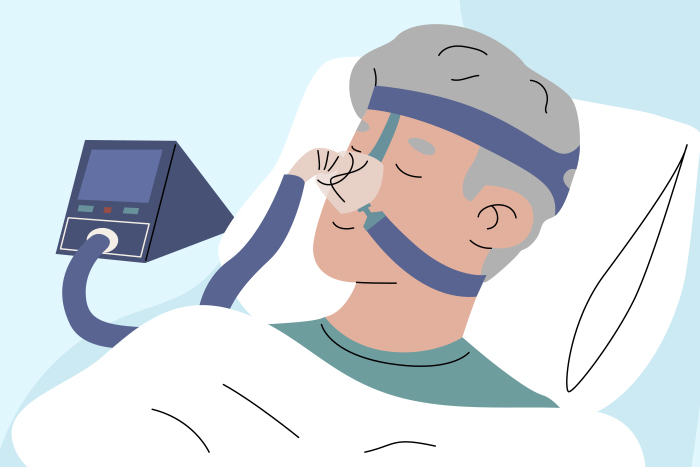Learning to Sleep Comfortably with a CPAP Machine
If you've recently been diagnosed with sleep apnea, your doctor may have recommended a CPAP machine. At first, the idea of sleeping with a mask and machine might feel overwhelming. But with time, patience, and a few helpful tips, many people find that CPAP therapy becomes a comfortable part of their nightly routine—and they wake up feeling more rested and alert.
Understanding CPAP Therapy
CPAP stands for continuous positive airway pressure. The machine delivers a steady stream of air through a mask to keep your airway open while you sleep. This prevents the pauses in breathing that characterize sleep apnea.
While CPAP is a common and effective treatment, it can take some getting used to. Here are some practical tips to help you adjust and make the most of your therapy.
Choosing the Right Mask
The mask is a crucial part of your CPAP setup. There are several types, and finding the one that fits you best can make a big difference:
Nasal Pillow Masks: These are small and rest at the entrance of your nostrils. They're a good option if you feel claustrophobic with larger masks or if you wear glasses.
Nasal Masks: These cover your nose and are suitable if you move around a lot in your sleep.
Full Face Masks: These cover both your nose and mouth. They're helpful if you breathe through your mouth at night.
Work with your doctor or CPAP supplier to try different masks and find the one that's most comfortable for you. Remember, a proper fit is essential to prevent air leaks and ensure effective therapy.
Getting Used to the Mask
It's normal to need some time to adjust to wearing a CPAP mask. Here are some steps to help you acclimate:
Wear the Mask During the Day: Start by wearing the mask for short periods while you're awake, such as while watching TV or reading. This helps you get used to the feel of it.
Use the Ramp Feature: Many CPAP machines have a "ramp" setting that starts with lower air pressure and gradually increases to your prescribed level. This can make it easier to fall asleep.
Practice Relaxation Techniques: If you feel anxious or claustrophobic, try deep breathing exercises or progressive muscle relaxation before bed.
Be Patient: It may take several weeks to fully adjust. Stick with it, and don't hesitate to reach out to your healthcare provider if you encounter issues.
Tips to Boost Your Comfort
To make your CPAP experience more comfortable:
Use a Humidifier: Dry air can irritate your nose and throat. A heated humidifier attached to your CPAP machine can add moisture to the air, reducing dryness.
Keep Your Equipment Clean: Regularly clean your mask, tubing, and humidifier to prevent mold and bacteria buildup. Follow the manufacturer's instructions for cleaning.
Adjust Your Sleeping Position: Sleeping on your side can help reduce pressure on your airway. Ensure your pillow doesn't push against the mask, which can cause leaks.
Consider Mask Liners: Soft cloth liners can reduce skin irritation and improve mask seal.
Staying Motivated
Remember, the goal of CPAP therapy is to improve your sleep and overall health. Many people report feeling more energetic and alert after consistently using their CPAP machine. Keep in mind:
Track Your Progress: Some CPAP machines record usage data. Reviewing this information can help you and your doctor assess how well the therapy is working.
Join a Support Group: Connecting with others who use CPAP can provide encouragement and practical tips.
Celebrate Small Wins: Each night you use your CPAP machine is a step toward better health. Acknowledge your efforts and progress.
Still having trouble with your CPAP machine?
If you continue to experience discomfort, air leaks, or other issues, don't hesitate to contact your doctor. They can adjust your machine settings, suggest different equipment, or explore alternative treatments if necessary.
Don’t Give Up
Adapting to CPAP therapy may take time, but many people find that the benefits—better sleep, improved mood, and increased energy—are well worth the effort. With the right equipment, support, and mindset, you can make CPAP a comfortable and effective part of your nightly routine.
Sources:
Mayo Clinic: CPAP machines: Tips for avoiding 10 common problems
American Lung Association: Treating and Managing Sleep Apnea

